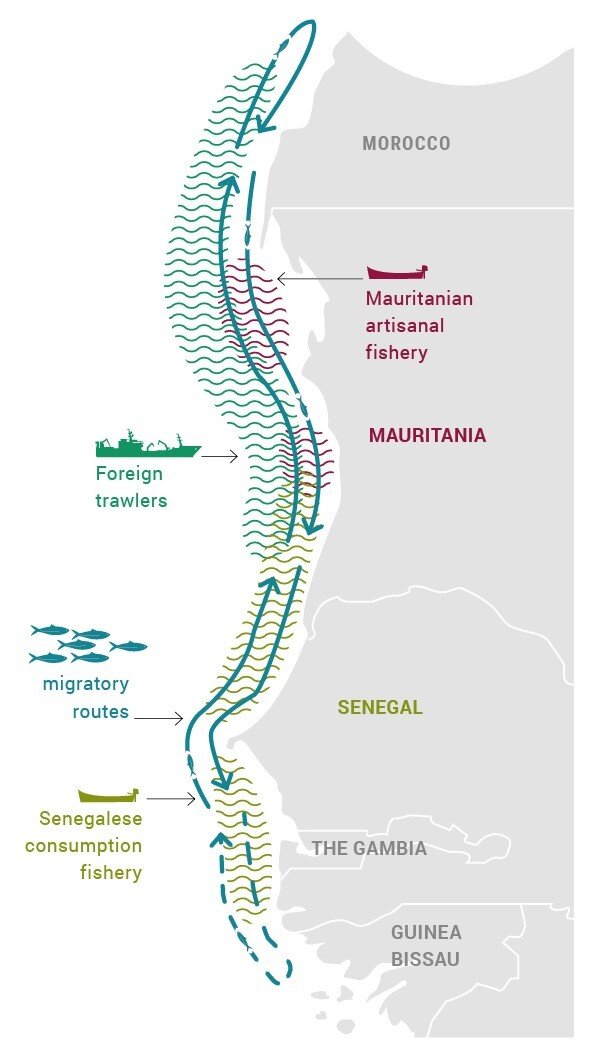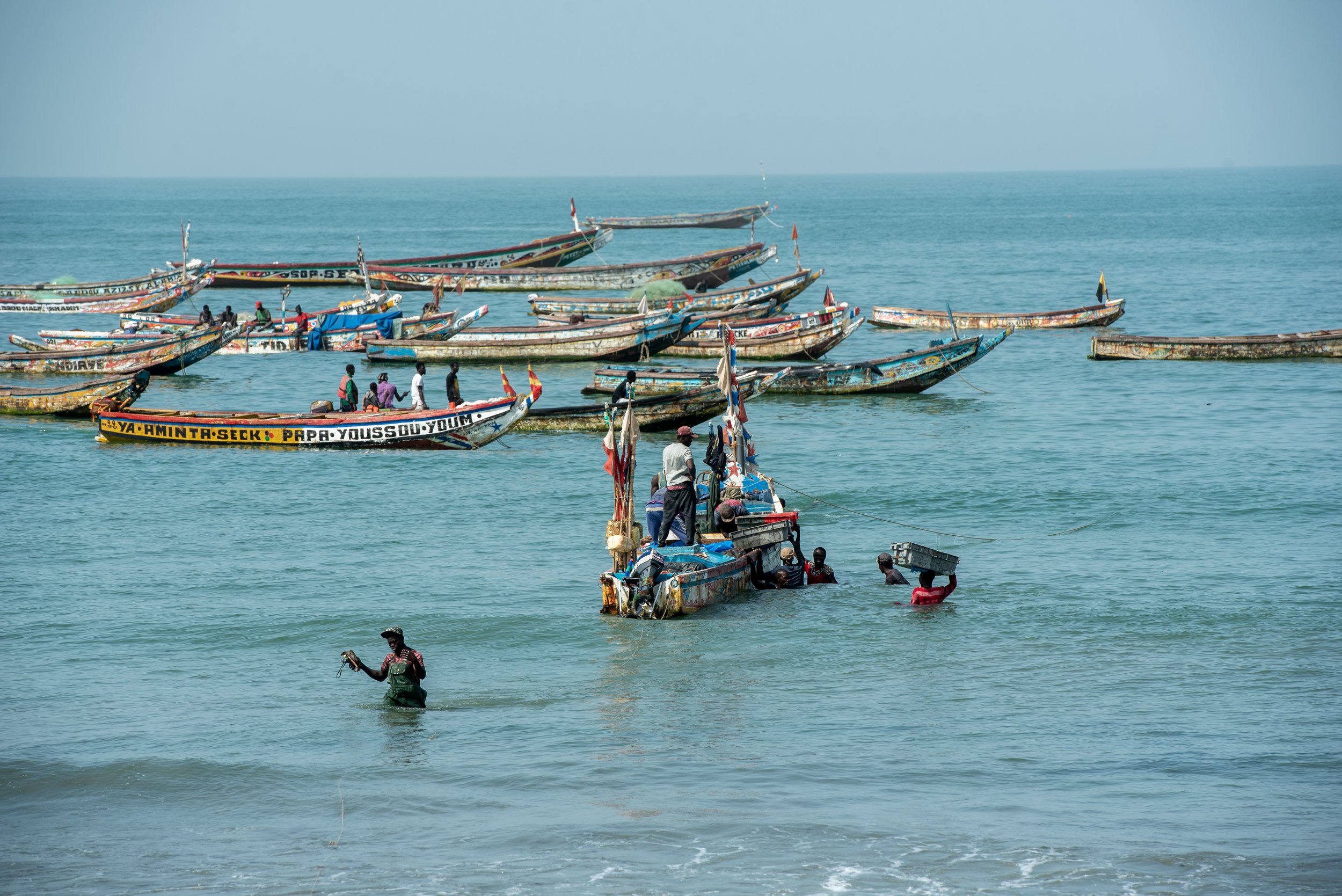Sardinella is a small pelagic fish, staple food for West African communities. Not only it provides vital nutrients, but it also supplies jobs for hundreds of thousands of fishermen, women fishmongers and fish processors along the coast of West Africa. However, in the past ten years, access to fish for local consumption in the region has become harder and expensive.
Sardinellas are migrating between Morocco and Guinea Bissau, which means they are shared stocks. These stocks are now severely overfished, partly as a result of the recent development of a fishmeal industry in Mauritania. The two main fishing countries in the region, Mauritania and Senegal, have so far failed to take adequate measures to manage the stocks. This applies both to the collection of scientific data and the introduction of catch and effort restrictions.
In the context of the EU-Africa dialogue, it is crucial that the European Union, as a privileged African partner, should promote sustainable fisheries and food security for local communities. The EU is likely to extend for one year, and for the second time, the current protocol of the Sustainable Fisheries Partnership Agreement with Mauritania to allow more time for the negotiations of the next protocol. As negotiations continue, the EU should use this prolonged delay to promote better management of small pelagics in the region.
Fishmeal production in Mauritania
Before 2010, there was only one factory processing waste fish and offcuts. According to local sources, approximately 24 out of 40 factories are currently in operation; most of which are now using whole fish.
Prior to the blooming of fishmeal industry, foreign industrial fleets, large vessels from Europe and Russia, caught the majority of small-pelagic fish, which was then sold frozen or tinned for direct human consumption to African markets.
Round sardinella has been historically caught by Senegalese artisanal fishermen who sold it on local markets. A 24-m pirogue manned by 35 fishermen can catch up to 35 tons. It is roughly estimated that a single pirogue can ensure the livelihoods of 100 people direct and indirectly. However, artisanal fishermen are losing their jobs because of low catches.
In local markets, sardinella has become scarce and the price has sharply risen. In Senegal and The Gambia, women engaged in the fish smoking industry have less and less access to the fish.
How can the EU help improve (regional) fisheries management?
The EU-Mauritania fishing agreement is the largest of all the EU Sustainable Fisheries Partnership Agreements (SFPA). Despite the large amounts of money paid so far to Mauritania, both as compensation for the EU fleet access and for the development of the national fishery (sectoral support), there has been little progress in fisheries management.
These stocks are key for food security in the region and are severely strained. Given that the current protocol to the agreement is likely to be extended for another year, the EU should use the opportunity of the extended negotiations to promote improved management of small pelagics in the region.
The new protocol should oblige the Mauritanian government to:
drastically increase sampling of pelagic catches:
Mauritania fisheries research institute IMROP should collect the necessary number of samples from landings at the fishmeal plants and from catches by pelagic trawlers.
apply the recommendations of the FAO Working Group on the Assessment of Small Pelagic Fish off Northwest Africa
start consultations with Senegal on the joint management of sardinella:
The countries must base these measures on the advice of the FAO working group and they must agree on conservation measures (catch or effort limitation).
contribute to regional management efforts by supporting the FAO Working Group:
Since fisheries management and research are national responsibilities, the EU should not take over the funding of national sampling programmes but rather fund activities beyond the means of national governments, such as the regional coordination of research.
Note: This factsheet was based on an article by Ad Corten, who was head of pelagic research in The Netherlands from 1971 to 1996 and coordinator of the Dutch-Mauritanian cooperation in fisheries from 1998 to 2019. He is a member of the FAO Working Group on the Assessment of Small Pelagic Fish off Northwest Africa and of the EU-Mauritanian Joint Scientific Committee.













The Joint Committee of the EU-Mauritania SFPA will meet in Nouakchott from 4 to 6 December 2024. In this article, the author makes a number of recommendations in the light of the conclusions of the Fishery Committee for the Eastern Central Atlantic (CECAF). In its latest report, CECAF described the catastrophic situation of shared stocks of small pelagics and recommended a substantial and immediate reduction in fishing effort of 60% for flat and round sardinella.